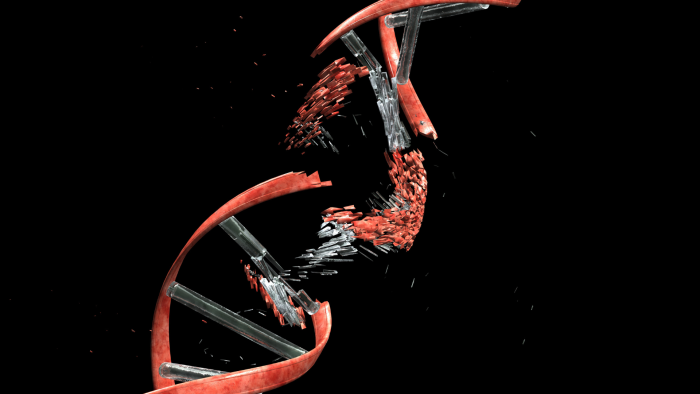
Bloom syndrome
Related gene: BLM
Inheritance pattern: Autosomal recessive
Bloom syndrome is a chromosomal damage syndrome, with some of the same features as ataxia-telangiectasia (A-T), that has primarily been described in the Ashkenazi Jewish population. The disease is caused by a mutation in the BLM gene that encodes a protein important in repairing DNA strands during DNA replication.
Individuals with Bloom syndrome develop repeated lung and ear infections and may have decreased immunoglobulin levels, so Ig replacement therapy may be indicated. Due to the DNA repair problems, they are very sensitive to sunlight and other forms of radiation and tend to be small in size. Other associated complications are learning disability, dermatologic problems, infertility, an increased risk for diabetes and obstructive lung disease, and a high lifetime risk of developing all types of cancers. As with all syndromes, not every affected individual has all of these characteristics, so there is great variability and degree of severity among individuals.
Individuals with Bloom syndrome often have high-pitched voices, narrow facial features, and long arms and legs. They tend to have normal muscle development but reduced amounts of subcutaneous fat tissue. The dermatologic problems associated with Bloom syndrome include significant sun sensitivity and poikiloderma, a skin condition characterized by areas of abnormal pigmentation and telangiectasias. The diagnosis of Bloom syndrome is made when individuals present with characteristic features of the syndrome, and the diagnosis is confirmed with genetic testing.
The potential for cancer is the greatest concern for individuals with Bloom syndrome. Often individuals have multiple malignancies. Leukemia is the most common cancer in individuals less than 20 years old and solid organ tumors are more common in individuals older than 20. Colon cancer can present at any age, as can skin cancers. As with A-T, proactive care is key to improving quality of life. Affected individuals should have all routine cancer screenings including colonoscopy and skin surveillance. In this population, symptoms, such as fatigue, night sweats, bruising, and swollen glands, should be assumed to be signs of malignancy until they are proven otherwise.













